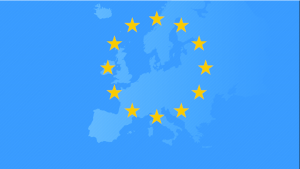Modern Caravels: Three Adventures from Lithuania

Ingrida Kalinauskienė
 Politicians increasingly understand that a good politician is a transparent politician.
Politicians increasingly understand that a good politician is a transparent politician.
A few centuries ago, a caravel – a small, manoeuvrable sailing ship – was a game-changer. Crews would embark on explorations of the unknown, compelled to make new discoveries.
At TransparencyAccording to OGP’s Articles of Governance, transparency occurs when “government-held information (including on activities and decisions) is open, comprehensive, timely, freely available to the pub... More International (TI) Lithuania, I often feel like a ‘sociophysicist’ in a modern caravel. We have to be flexible, listen to the needs of the organisations or the groups that we work with, and help them understand how they can create a good and sustainable example of transparency on their own.
It is my opinion that the low levels of trust in government and public institutions indicate that people do not believe these institutions are acting in their best interests. Being a young person myself, I often do not trust what I cannot understand. If you, like me, are interested in concrete measurable initiatives and love behavioural science, I hope these three stories will provide you with insights for your own adventures.
Our experience in Lithuania shows that maintaining a successful stance on transparency and accountability requires three key ingredients: a sense of ownership, realistic goals, and data. A proper combination of these ingredients can result in small victories that might spark a chain reaction leading towards greater improvements overall.
In the last few years, we have embarked on various expeditions: to one of the most corrupt sectors in Lithuania; to an institution with the lowest trust levels; and to communities with high potential for innovation. Our goal was to understand how small anti-corruption and transparency victories can be created together with patients, politicians, and pupils.
Would You Recommend Your Clinic to a Friend or Colleague?
Within the European Union, Lithuania has the second highest percentage of bribery in healthcare institutions. This suggests that patients do not trust the healthcare system as they believe they cannot receive good quality service without an additional payment. Given the lack of progress in tackling healthcare corruption through conventional instruments, TI Lithuania worked closely with an outpatient clinic in Lithuania to develop a measured bottom-up initiative called Vitamin Lab1. Vitamin Lab is a very simple and engaging interactive installation empowering patients to leave their feedback on the quality of service they receive.
Results show that patients who evaluated the clinic’s service were less likely to believe that unofficial payments or gift-giving would have helped them receive better treatment. Moreover, patients who provided feedback felt more positively about the service at the clinic. This suggests that patients understand bribery as a service flaw. The more of such flaws they see, the less likely they are to recommend the service to others2. This initiative has also helped us start a discussion on the need for representative data and comparable indicators of the performance of healthcare institutions in Vilnius.
Sunlight is the Best Disinfectant
One out of two Lithuanians do not trust the Parliament, while almost two thirds do not trust political parties3. In Lithuania, lobbyingLobbying transparency allows the public to ensure that there is diversity of participation and contribution to public decision-making. Technical specifications: Policies and actions affecting lobbying... is not talked about; one might believe that our Members of Parliament (MPs) do not meet with any interest groups or lobbyists. At TI Lithuania, we decided to count the meetings with interest groups that parliamentarians had already registered. In doing so, we were trying to introduce a simple habit of transparency – encourage MPs to show which interest groups and ideas shape their political decisions.
After two years of tracking and four released reviews, the number of MPs declaring their meetings has doubled and 1.5 times more meetings have been published4. Politicians increasingly understand that a good politician is a transparent politician. Moreover, this small initiative has also contributed to the opening up of parliamentary data and a strong push for better lobbying regulationGovernment reformers are developing regulations that enshrine values of transparency, participation, and accountability in government practices. Technical specifications: Act of creating or reforming ....
How Would You Spend 1,000 Euros?
In France, more than 80 percent of schools have introduced participatory budgeting by inviting pupils to allocate a small part of the school budget5. We wondered if similar initiatives in Lithuanian schools could increase the level of transparency and pupil participation in decision-making.
We are at the very beginning of two such initiatives. Yet, we can already see that pupils are actively engaging in this exercise. We have encouraged them to feel like the owners of their schools and allocate a part of the school budget (€1,000-1,500). As a result, they have come up with more than 100 ideas to improve school life: new door lockers, benches, volleyball equipment, extra-curricular classes, etc. It is very exciting to see that more and more schools in Lithuania are opening up to new ideas and decide to test innovative initiatives in their environment. This will hopefully set an example not only for other schools but also for our local politicians and inspire them to introduce participatory budgeting initiatives at the municipal level.
To sum up, if we as citizens were to better understand the inner workings of our institutions, get more involved in their activities, and engage in proper dialogue, we would have greater trust in our institutions and an increased sense of ownership when it comes to our cities.
Every summer we discuss similar adventures with the young captains of caravels from all over the world at the Transparency School in Vilnius. I believe that you too have similar stories of small victories from your country. Please feel free to share them with me at [email protected]
1 https://www.transparency.lt/en/pacientai-kurie-ivertina-savo-apsilankyma-pas-gydytoja-maziau-linke-duoti-kysius/
2 https://www.transparency.lt/wp-content/uploads/2016/11/Social-design-experiments-in-healthcare_2016.pdf
3 http://www.vilmorus.lt/index.php?mact=News,cntnt01,detail,0&cntnt01articleid=2&cntnt01returnid=20
4 https://www.transparency.lt/en/in-the-last-2-years-the-number-of-parliamentarians-who-declare-their-meetings-with-interest-groups-or-lobbyists-has-doubled/
5 https://budgetparticipatif.paris.fr/bp/jsp/site/Portal.jsp?document_id=3158&portlet_id=171
No comments yet
Related Content

Do We Trust Democracy? A Future Agenda for Europe
The European election of 2019 asked voters to choose between more or less Europe, between inclusion and diversity or exclusion and nationalism, and between societies that are more open or…

Leave a Reply